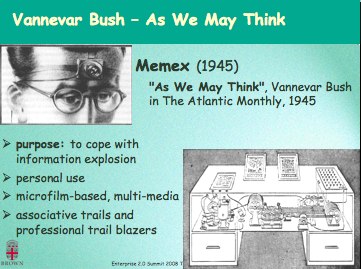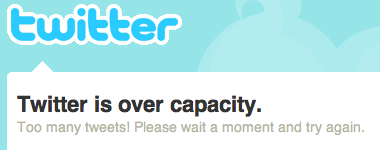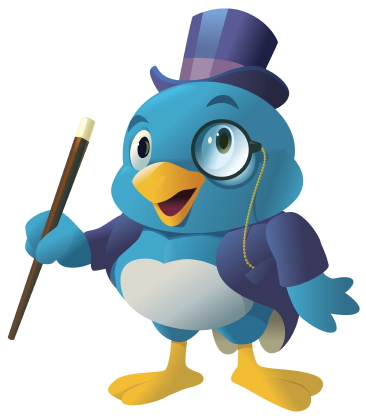TUG 2009 Providence | Thank you!
 I'd like to thank all of the Traction customers, partners and friends who traveled to Providence last month to make TUG 2009 Providence as enjoyable as it was enlightening. Special thanks to keynote speakers Carmen Medina, Chris Nuzum, Stewart Mader and all of the customers and partners who participated in the Oct 14 Main event. And my personal thanks to everyone on the Traction Software team who worked so hard to bring TeamPage R4.2, the Oracle RDB backend, Attivo Advance Search, and the Proteus Google Web Tookit (GWT) UI to life. I don't know what we'll do to top TUG 2009 next year - but TUG members provides some excellent ideas! See TUG 2009 Providence | Keynotes by Carmen Medina, Chris Nuzum and Stewart Mader for links to TUG videos, slide shows, interviews, tech talks and more, along with how become a TUG member and join the conversation. TUG registration is free and open to the public.
I'd like to thank all of the Traction customers, partners and friends who traveled to Providence last month to make TUG 2009 Providence as enjoyable as it was enlightening. Special thanks to keynote speakers Carmen Medina, Chris Nuzum, Stewart Mader and all of the customers and partners who participated in the Oct 14 Main event. And my personal thanks to everyone on the Traction Software team who worked so hard to bring TeamPage R4.2, the Oracle RDB backend, Attivo Advance Search, and the Proteus Google Web Tookit (GWT) UI to life. I don't know what we'll do to top TUG 2009 next year - but TUG members provides some excellent ideas! See TUG 2009 Providence | Keynotes by Carmen Medina, Chris Nuzum and Stewart Mader for links to TUG videos, slide shows, interviews, tech talks and more, along with how become a TUG member and join the conversation. TUG registration is free and open to the public.
Where's Greg?
 You may have noticed a slow down in blog posts by Jordan and myself, and attributed that to our work for TUG 2009 Providence last week, and you'd be partially right (but it was fun - as you'll learn). You can also blame our slower blog posting to time spent on Twitter, both as individuals: @roundtrip (Greg Lloyd) and @jordanfrank and using the Traction Software corporate feed @tractionteam (which broadcasts the title and a shortened link to new content posted on TractionSoftware.com as well as original tweets).
You may have noticed a slow down in blog posts by Jordan and myself, and attributed that to our work for TUG 2009 Providence last week, and you'd be partially right (but it was fun - as you'll learn). You can also blame our slower blog posting to time spent on Twitter, both as individuals: @roundtrip (Greg Lloyd) and @jordanfrank and using the Traction Software corporate feed @tractionteam (which broadcasts the title and a shortened link to new content posted on TractionSoftware.com as well as original tweets).
Structuring for Emergence
Enterprise 2.0 Social Software is appealing for many reasons, but a core value is the facilitation of emergence. Many in our community may quibble with McAfee's definition of Enterprise 2.0 but I think all will agree that the need to support emergence is a key trait. However, an emergent discussion shines a light on the interacting role of structure and emergence.
2.0 Adoption Council | Neat Tweet!

Susan Scrupski (aka @ITSinsider) tweets Sep 22, 2009: reading a great preso by a Council member. great testimony for e20 vendor Traction Software @TractionTeam
re: At What Scale Can Web Services Survive?
9 Months later, I have an answer: 300 Million Users. It's good to see that all that traffic can add up to enough dollars to sustain the service. I wasn't looking forward a cash crunch at FaceBook leading to the dismantling of the network of friends I've spent a few hundred (or maybe a thousand) clicks putting together.
As We May Work - Andy van Dam

On April 17, 2008 Professor Andy van Dam of Brown University delivered the keynote address of the Enterprise 2.0 Summit 2009 Tokyo. Andy's title is a play on Vannevar Bush's July 1945 essay As We May Think. As We May Think inspired creation of pioneering hypertext systems by Andy, Ted Nelson, Doug Engelbart and others, leading to Tim Berners-Lee and the World Wide Web. The creators of these hypertext systems originally envisioned an environment where individuals could write, link, comment on and share what they wrote as well as search and read what others had written - core capabilities of what we now call social software for the public Web or an Enterprise. Andy's keynote is a personal history, and a vision of how the Web provides a new context for work as well as public communication, socialization, commerce, scholarship and entertainment. For the full slide set see As We May Work (.ppt 8.8MB), posted here with Andy's permission.
Is Twitter Like Going Out for a Smoke? - And Other stories
Bill Ives posted an interesting post Is Twitter Like Going Out for a Smoke?, responding to a Twitter / Water Cooler analogy by Arie Goldshlager and a smoker's network analogy pointed out by Stewart Mader and Gil Yehuda in Lessons from New York Smokers. I commented: Bill -- An interesting post and topic! I think there's likely an interesting history (and sociological studies) of how informal groups form and cross-link in businesses and other organizations.
Project Artifacts - Risks, Issues, Questions, Requirements and more
Glen Alleman at Herding Cats offers really nice distinctions in Risks and Issues Are Not The Same. In the course of working with a lot of teams as they deploy TeamPage as a project wiki, I've seen a wide range of terms for project artifacts. The more these concepts are discussed and hashed out, the better.
Skiing on the Slope of Enlightenment
At our market launch in 2002, I recall all kinds of skepticism passing off the wiki and blog markets as a fad. Today, with a complete social software platform and the most robust wiki framework on the market, we are skiing on Gartner's Slope of Enlightenment. Gartner reports that Social Software suites are headed for the trough of disillusionment (a good and necessary transition before hitting the slope of enlightenment), though our customer case studies show little illusion about the tangible and necessary business value delivered by Traction TeamPage. » Read Gartner's press release and ReadWriteWeb's report. ReadWriteWeb's writeup.
Compliance and Enterprise 2.0 - For the right reasons
 Burton Group analyst Mike Gotta writes Compliance Doesn't Sell E2.0 … But It Should in his personal Collaborative Thinking blog. Mike summarizes a June 2009 E2.0 conference interview with Alexander Howard, quoted in Compliance concerns dog Enterprise 2.0 collaboration platforms. Howard asks:
Burton Group analyst Mike Gotta writes Compliance Doesn't Sell E2.0 … But It Should in his personal Collaborative Thinking blog. Mike summarizes a June 2009 E2.0 conference interview with Alexander Howard, quoted in Compliance concerns dog Enterprise 2.0 collaboration platforms. Howard asks:
How 1.5 is Greater than 2.0
I found Tom Davenport's discussion of Why 1.5 is Greater than 2.0 by way of Bill Ives in Mixing Old and New School Communication. Davenport talks about the social reasons in favor of a blend between social and traditional approaches. I think an answer to How 1.5, in this context, is Greater than 2.0 is both social and structural.
What's Social About Software? And Why It Matters.
Innovation starts with words, and ways to convey them.
Having versus Using Enterprise 2.0 Software

Gil Yehuda wrote a very good post today Enterprise 2.0 Thoughts to end the week. He talks about Enterprise 2.0 maturity, second wave adoption, focus on work, and levels of the conversation. It's a great post you should read in full and reflect on. One particular point caught my attention; Gil says: "... having a wiki, forum, blogs, etc. on the intranet and using a wiki, forum, blog effectively to improve the transparency and productivity of collaboration are very different indicators of progress."
Andy Keller talks about Traction's use of GWT | Video
May 12, 2009 5:38pm rotkapchen Great explanation: Traction Director of Engineering Andy Keller tells why Traction's chose GWT (Google Web Toolkit) for TeamPage's new interaction layer. View video inline below or youtube.com/watch…
#E2L09 Innovation Starts with Ideas. Wiki will Cross the Work 2.0 Frontier When TeamPage 5.0 Carries Ideas into Action.
These case studies are a taste of how ideas and issues turn into action, how tasks evolve from conversations and how boundaries have to appear to disappear for W2.0 ideas to meet E2.0 execution. See you at E2.0.
Can't stuff the Web back in a box ...

On April 16 2009 Oliver Marks wrote The CIA's Collaboration Growth Curve & IBM's Lotusphere ecosystem connecting three topics: 1) the transformation of the CIA's collaborative practices; 2) how this relates to the concept of the collaboration curve introduced by John Hagel III, John Seely Brown (JSB), and Lang Davison, and 3) his reaction to IBM's Lotusphere Comes to You roadshow event in San Francisco that day. It's a great post which motivated me to add a comment which I expanded a bit below.
re: Explaining Twitter - One of Three Places for People
Rafe WTF of the day: @Josh comes back from lunch... "I got some cat food, do you want it?" Twitter.com 4:13PM 15 Apr 2009 ... much funnier than my example, but QED.
Enterprise 2.0 and the importance of Silo Smashing!

Recent posts by Michael Sampson, John Tropea and Thomas Vander Wal converge on the need for Enterprise 2.0 tools to smash the silos segregating content types and isolating workspaces.
Mixing Tasks and Conversations, and KUKA as the "seminal enterprise 2.0 solution"
A tweet from John Tropea identifies our Kuka Systems case study as the "Seminal enterprise 2.0 task based / process solution." THANKS! I can't imagine a better endorsement of a case study, or the product supporting it.
Should Software Vendors Also Sell Professional Services? YES!
This conversation started with Stewart Mader and continues with Bill Ives. While most of our customers run the easy installer and are up and running readily, many benefit from our front end advice as well as more formal professional services engagements. This exchange offers two simple benefits that are strategic to the customers and to the software producer (and, in turn, to the customers).
re: Explaining Twitter - One of Three Places for People
Update: Steve Buttry Information Content Conductor of Gazette Communications posted an excellent tip sheet: Leading your staff into the Twitterverse for a workshop he'll be leading for the American Society of Newpaper Editors. It's an great introduction to Twitter which covers linking, following, tools and ethics. I believe Steve's advice is just as valuable for neighborhood (Facebook) and workplace (Enterprise 2.0) microblogging. Steve writes:
I Can't Tweet & Trusting Online Services
 Last fall, I pointed out an issue of trust as part and parcel of Web 2.0 security (See What Web 2.0 and E2.0 Security Means to Me). When we accept social services like Facebook and Twitter as Two of Three Places for People, we entrust them to manage our data securely, to keep consistent terms (i.e. they don't suck us in and then suck us dry by starting to charge for basic services), and to be there when we need them. Today, I felt muzzled as I was touched by the uptime issue. I got this "over capacity" memo when I went to Tweet an answer to Dave Lamp's Question. I've received the "over capacity" messages several times and will continue, for now, to trust they'll iron things out over at Twitter HQ.
Last fall, I pointed out an issue of trust as part and parcel of Web 2.0 security (See What Web 2.0 and E2.0 Security Means to Me). When we accept social services like Facebook and Twitter as Two of Three Places for People, we entrust them to manage our data securely, to keep consistent terms (i.e. they don't suck us in and then suck us dry by starting to charge for basic services), and to be there when we need them. Today, I felt muzzled as I was touched by the uptime issue. I got this "over capacity" memo when I went to Tweet an answer to Dave Lamp's Question. I've received the "over capacity" messages several times and will continue, for now, to trust they'll iron things out over at Twitter HQ.
Reading blogs at 800 MPH
I took a long needed vacation last week and came back to the usual firestorm of post-vacation pile-up that makes one pause before entertaining the idea of another break. Anyhow, after meeting a few high priority deadlines, I had time this afternoon to review everything posted to our TeamPage server in the last 2 weeks.
Ada Lovelace Day | Professor Lee S. Sproull, Stern School, NYU

For this first Ada Lovelace Day I've chosen to write about Professor Lee Sproull an internationally-recognized sociologist whose research centers on the implications of computer-based communication technologies for managers, organizations, communities, and society. Professor Sproull is a pioneer and visionary in the rigorous study of what we now call social software.
Explaining Twitter - One of Three Places for People

Last week a friend who just signed up on Twitter said: "... just like Jon Stewart, I can't figure out how it works or why anyone would want to tweet or get anyone else's twitter. I had no idea what grunt and stalker is but I am assuming that is reality too. I put this all in the pocket with second life (stupid bulky awkward and totally useless)." So I reluctantly joined the crowd attempting to explain why people who have a job and have a life might be interested in Twitter. I decided to describe Twitter as one of three distinct places on the Web where I socialize every day: the public commons. The others two are my neighborhood and my workplace.
I'll call this the "I just picked up more cat food" use - and yes I believe than many people do have friends and family from whom a stream of these tiny updates is enjoyable and valuable even when the content is as mundane as the dullest blog in the world. Tweets are very short and don't demand a lot of attention. The background chatter of friends or family - like the chatter of children playing - is comforting, enjoyable and entertaining especially when you're physically separated. You should note that Twitter currently allows you to either make your account public (anyone can read) or private (only followers you OK can read what you tweet) so using Twitter for private "friends and family only" tweets become awkward at best and precludes use of the same account for public conversation on Twitter.
|
Facebook: To me this place is a neighborhood where you can choose your own friends and neighbors. I use Facebook mainly for informal friend, family, alumni keep in touch posts and links. Because Facebook friending automatically builds a two-way follows relationship versus Twitter's one-way user model, it's easy to build and maintain a neighborly feel by default. I enjoy status updates and posts (like tweets with structure for videos, web links and Facebook apps) from "friends" and keep my posts open to members of my college's Facebook Network. The Facebook posts I write and read are generally for smile value or status updates that would only be of interest to folks who know one another and find the chatter comforting rather than noise. Although it's possible to turn down the volume of posts from folk who tend to update a lot, signal to noise is not really a problem with a neighborhood of tens to hundreds of folk. Just like in real life you know how to act and what to expect in your Facebook neighborhood.
Twitter Sucks, so change your friends Mar 16, 2009 Steve Lawson. His analysis and examples are even better than the title.
 I18N ERROR: @tsiskin#footer_RSS_Feed
I18N ERROR: @tsiskin#footer_RSS_Feed